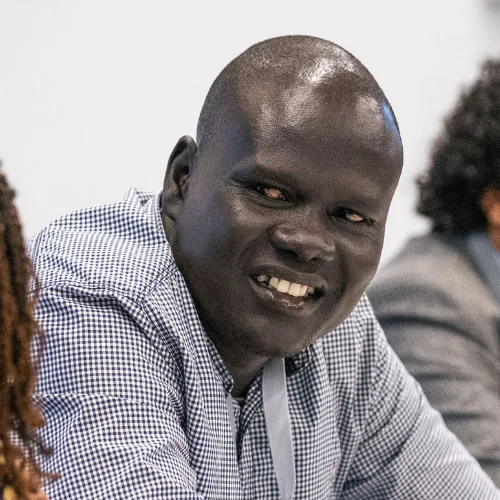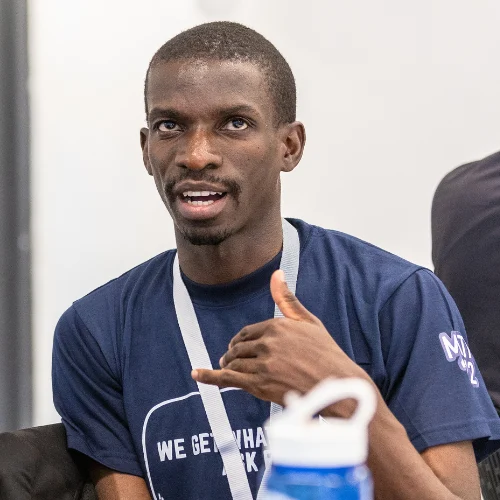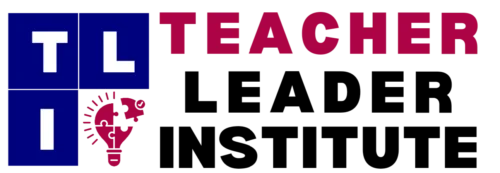Our Impacts
These stories describe the work of TLI faculty members acting as Fellows, Teacher Leaders, and School Leaders during their time working with Ric Campbell, TLI Executive Director, in his role as founder and director of the Master Teacher Program (MTP) of AL for Education at the African Leadership Academy. We build on these experiences and the principles and practices we developed during this time to advance school change through the work of teachers and their school administrative teams as educational leaders.
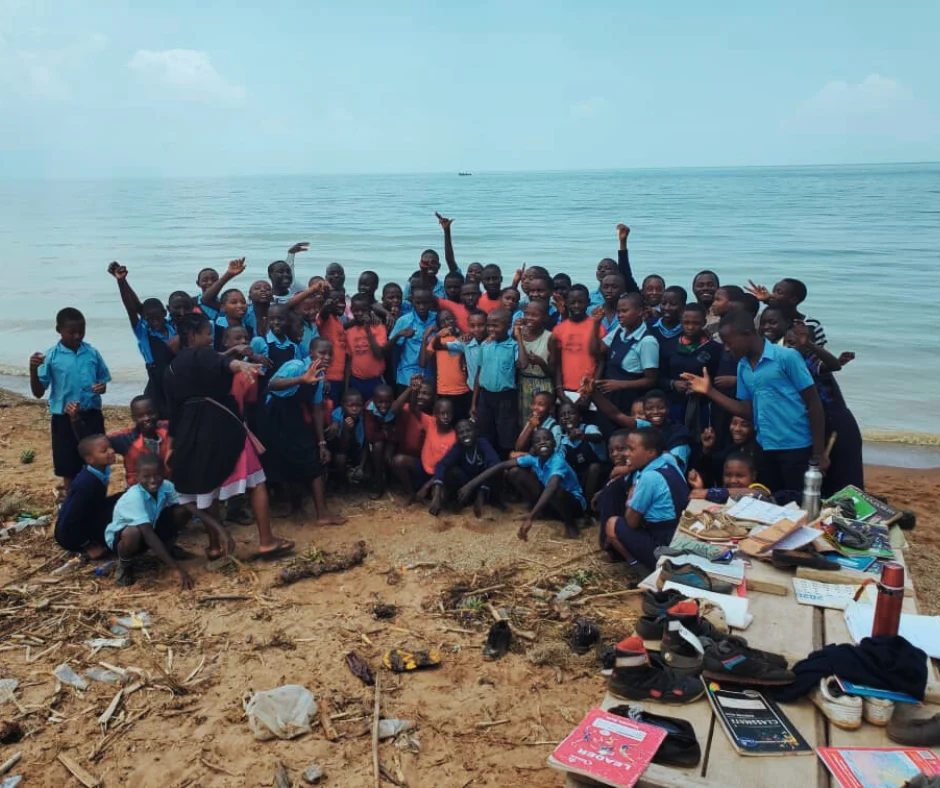
CORBUWAS, Uganda
COBURWAS
Before the program, I had a particular mindset about teaching. I believed that the learning process depended entirely on me as the teacher. I used to follow the traditional approach that I had seen other teachers adopt – bombarding students with notes and excessive revisions, all in the name of achieving good grades.
The Master Teacher Program completely shattered my previous beliefs and opened my eyes to new possibilities.
I have learned to shift my focus from being the centre of attention in the classroom to placing students at the heart of the learning process.
By implementing learner-centred approaches and diverse teaching strategies, I have witnessed increased student engagement and comprehension. Students actively participate in class discussions, contribute their thoughts, ask questions, and engage in peer-to-peer dialogue.
Some examples;
During role plays and drama activities focused on conflict resolution, students learned better approaches to problem-solving. They developed skills in effective communication, active listening, and empathy as they navigated conflicts and found resolutions. This was very important, especially considering the background of many students who had been exposed to conflict situations in their everyday lives.
In the letter-writing unit, students honed their communication skills by writing various types of letters, such as invitations and appreciation letters. They experienced the power
of effective written communication and utilised modern communication tools like Zoom for real-time interactions.
Complex problem-solving activities were also incorporated into lessons. In a lesson on peace and security, students wrote and performed drama scripts addressing conflicts in their community. They applied their knowledge of conflict resolution techniques to develop impactful scripts and presented them to raise awareness and promote dialogue.
Students have become active participants in their learning, demonstrating improved engagement, critical thinking skills, communication abilities, and problem-solving abilities. To think that this is just the beginning of what is possible in my career is indeed exciting.
Ferdinant Ayikobua
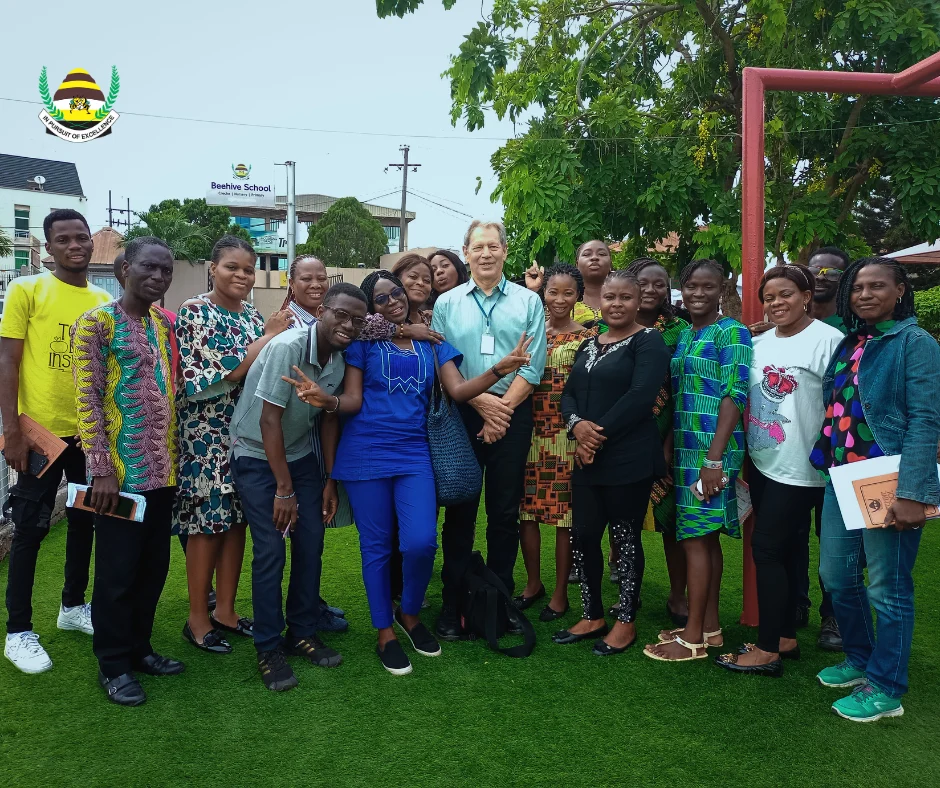
Beehive School, Lagos Nigeria
Beehive School, Lagos Nigeria
I was interested in being a part of an exceptional educator development program that has participants from schools across Africa and helps develop Africa’s next generation of teacher leaders. I was new to education and I wanted help navigating the learning curve.
Before joining the MTP, I was more focused on preparing myself and how and what I wanted to impact the children. This was a good start, however, since the MTP program, the focus has gradually shifted to how and why the children learn, their thoughts and ideas on topics drive lesson discussions with me as a guide.
My practice has changed as I am now accustomed to having a problem of practice which I want to solve as my main drive unlike before when my main drive was to simply deliver my lesson plan without broader considerations.
My Learnings and Growth
I have learnt many things, but one that sticks with me in every class and through every inquiry I have run is that when a child owns their learning process, they are more likely to be intrinsically motivated. I have taken it as my role to encourage this in every one of my classes regardless of the topic or current inquiry cycle. One of my earlier research was to seek what truly drives intrinsic motivation in learners.
Intrinsic motivation in the classroom is the ability to complete a skill or activity based on personal interest, achievements, and enjoyment, not external rewards. Many children need external motivation in the classroom or with related service providers to complete tasks or practice skills.
The question I set out to answer was: ‘How do we get learners to dig inwards and give their best for themselves and not for their teachers or parents?’
Another classroom inquiry I undertook had to do with equipping the children with reflection skills as it concerns their learning. By doing so we made the gradual shift as a class to take time often to ‘think about thinking’ and self-review our tasks or attitudes towards our school work along the lines of what went well and what we could have done better to deliver our best work.
This helped me as a teacher because my students learnt to give themselves fair feedback on their work. For those who truly embraced the learning it was a big drive to motivate themselves and this increased class engagement.
I have also learnt that the most important part of teaching is the planning, once this is done well it makes for a great execution. I used to think of my time in the classroom as the main part of the show but I know now that the planning process and my observation of the classroom while simultaneously delivering the lesson plan is where I get the feedback on how well the lesson and planning went.
My Students’ Learning and Growth
On this journey, my students have amongst many other things, learnt to:
- reflect on their learning process and give themselves feedback,
- seek to improve personal intrinsic motivation,
- be aware of different audiences and how it may affect their speech and presentation,
- use problem-solving as an entrepreneurial leadership skill
- use writing to learn to ‘think about thinking’ – free writing, process writing etc.
This was achieved using some of the following practices:
- I encouraged the opportunity for discussions that resulted in learners learning from and teaching one another – working in pairs/teams. This way those children who are more motivated can take a lead and show others what it means to be active and all the benefits that come with it. Learners who were less motivated and didn’t participate much realised that more effort needed to be put in to get good results and be able to share meaningful work.
- Questions were posed deliberately to the learners, asking them to think about how they felt during the process and how they felt about their progress. Having time to think about their participation levels and performance helped them stay on task with a determination to put in their best. It also made them feel good to share their thoughts about the work they had been given, it dawned on them that their thoughts matter.
- The teacher also had the children compare good work to great work to encourage them to spot the difference and aim to put in more effort. When learners self-evaluate they can see clearer where they could have tried a bit harder or put in more effort and having the opportunity for this thought process and to share helps them to accept it and hopefully work at it.
- Deliberately creating the opportunity for each child to take part and giving them a chance to try again if they initially get the question wrong or do not understand the question by asking them to think about it some more. Being careful not to allow other learners to interject before the pupil can try again. Thereby not allowing room for feeling dejected after a mistake – get up and try again.
- Deliberately creating class activities that give an element of freedom and allow learners to bring in their perspective. For example, asking the learners to set their questions or choose their own set of homophones to compare. Freedom gives a sense of ownership which improves motivation and gives a sense of achievement.
- Creating the opportunity for learners to answer questions raised by other learners. This increases motivation as the learners feel they are ‘helping the teacher’ and also motivates those on the receiving end to want to partake in such scenarios.
- Make objectives clear enough at the beginning to keep them on task and continually emphasise throughout the class what we are jointly trying to achieve – e.g. – ‘How do we read?’ with confidence.
All of my students were impacted positively; confidence levels and engagement levels improved all around and even the shyest students found their voices. They were more confident of the fact that they also had unique ideas that the ‘world’ needed to hear.
Boyede Adebanjo, Beehive School, Nigeria
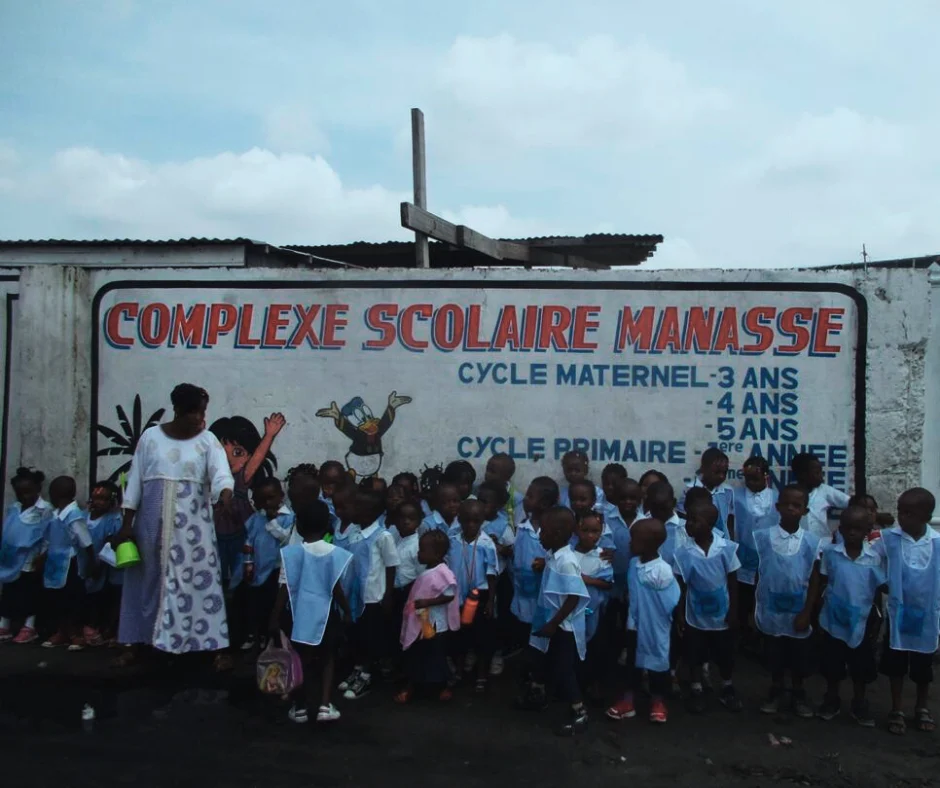
Manassé School, Kinshasa, DRC
Manassé School, Kinshasa, DRC
Manassé School is a reputable educational institution located in the city and province of Kinshasa, DRC. Specifically, the school is situated in Mole n°52, Lemba township, in the educational province of Mont-Amba. The school is committed to providing education to vulnerable children in a poor environment.
Operating since 2018, the school has made a name for itself in its community and the surrounding areas. Its student enrollment has grown from 283 students in 2021 to around 600 students in 2023. The teaching staff has doubled, with some classes being doubled and new classes added.
The school’s expansion is largely attributed to our work with Ric Campbell during his leadership of the Master Teacher Program at the African Leadership Academy. The MTP aimed to transform teachers into researchers by equipping them with inquiry-cycle strategies that improve students’ academic performance. Four teachers at Manassé School underwent the MTP program and worked on solving practical problems in the classroom.
The school has significantly increased its weekly workshops to equip all teachers with the necessary skills to teach more effectively. One of the four teachers trained under the MTP program, Ms. Deborah, an expert in Business Sciences, experienced teaching standing up in a classroom for the first time in her life. She learned how to manage a school through participative teacher leadership, which has broadened her capacity to listen to her teachers and consider their suggestions. She also discovered the beauty of teaching through the use of a group or team in the classroom.
In the same year, sixty finalists from 6e primary schools and 20 students from the CTEB (cycle terminal de base) obtained their state examination certificates. The authorities of the Lemba 1 sub-division praised the achievements of the finalists from Complexe Scolaire Manassé, recommending that other schools follow in Manassé’s footsteps.
The influx of students to the school presented a new challenge for the teachers. They experienced difficulty communicating in writing with the new incoming students in all classes, and we found that the newcomers were almost illiterate. The four teacher leaders trained under the MTP program helped to solve this problem, thanks to the expertise they had acquired.
To accommodate the growing demand for education, the school introduced two classes in the terminal cycle of basic education: the 7e and 8e Education de base, which are secondary-level classes. Before 2021, primary classes were limited to the 6e primary year. As a result, the school had to double its staff and recruit an English language teacher for all primary classes. The number of workshops, model lessons, and class observations also increased to bring everyone up to speed.
The school has increased contact and dialogue with parents through assemblies, initiatives, and telephone communications to sharpen the school’s vision and mission. This has helped to reduce the number of dropouts compared with previous years. Manassé School is committed to consolidating learning achievements to perpetuate the quality of teaching.
In the 2021-2022 school year, only 16 students took part in the national test at the school. The aim was to work on these students to promote the school’s reputation, and this was beneficial since, in the 2022-2023 school year, the number of students for the national test in the 6e primary year class increased from 16 to 40.
We can say that Manassé School has established a solid reputation at the primary level and has even expanded to include secondary-level classes. It’s impressive that the school was able to work on improving the performance of the 20 pupils who took the TENASOSP test, and this effort paid off with an increased number of pupils taking the test and higher enrollments in the 7-year class. It is also worth noting that the high enrollment numbers presented a new challenge for the school, which they overcame by splitting the class into two rooms.
Years

Teachers

Students
Testimonials

